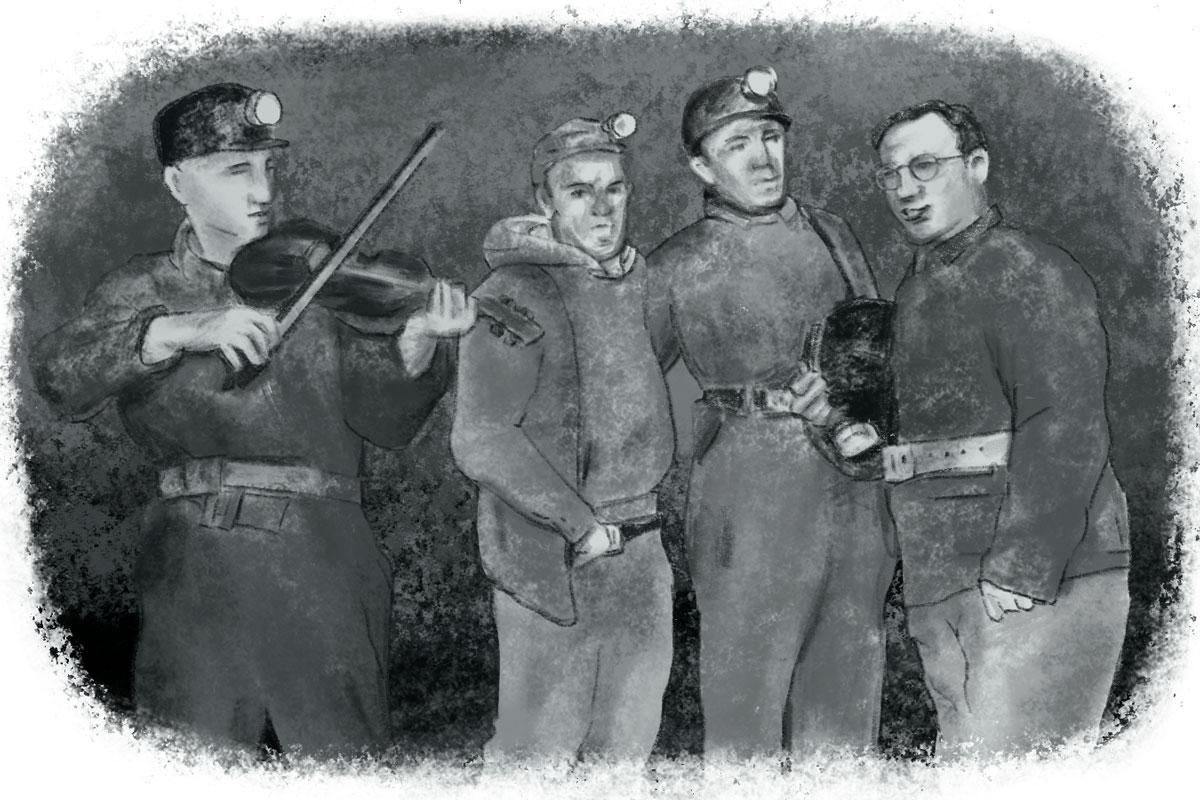t’s been six years since Bucknell forged a community partnership with the coal region, including the towns of Shamokin, Mahanoy City and Mount Carmel. The Coal Region Field Station (CRFS), which houses a variety of cross-disciplinary classes, student/faculty research projects and volunteer opportunities, has furthered community revitalization efforts in this distressed region and fostered pride in the past.In the last few years, says Place Studies Program Director Shaunna Barnhart, “There is more happening in the arts and storytelling realm, so it’s a legitimate narrative to weave that the ongoing CRFS work is part of George Korson’s legacy.”
She points out two projects led by Department of Art & Art History faculty: “There’s a photo documentary book that Tulu Bayar’s students produced through the Mellon Confounding Problems grant and an ethnographic magazine that Eddy Lopez’s students published.”
No Longer Strangers: Visual Stories from the Coal Region, created by Bayar’s students, features current and historical photos of local families and the towns of Mount Carmel and Shamokin. The magazine, Centralia, features student photos and oral histories with former residents of the coal town, which was rendered uninhabitable by an underground mine fire.

Students also conducted oral histories for the Studies in Autobiography class led by Professor Katherine Faull, German and comparative humanities and faculty director of the Engaged Bucknell initiative. Stories are collected on the Mining Memory: Enduring Stories from the Coal Region website.
A current art-related project is based in the State Correctional Institute at Coal Township as part of a sociology class that Professor Carl Milofsky is offering through the Inside-Out Prison Exchange Program.
Taylor Oxley ’21, a sociology and psychology major with a minor in social justice, is co-leading a fundraising project called Art from the Heart, which was conceived by Tito, an incarcerated member of the class. Art created by talented prison artists such as Tito, as well as other area artists, will be auctioned in April, with proceeds to benefit Transitions, a Lewisburg-based nonprofit that supports victims of domestic violence.
The project connects with the class focus on health care in prisons, Oxley says. “One of the main topics is stress and how trauma can induce stress in children and inhibit brain development. Trauma creates huge barriers and setbacks for inmates like Tito. Creating art is a positive element in reducing stress and is a positive coping mechanism.”
Current coal country projects that uplift residents’ voices demonstrate that “we’re coming back to the work that Korson did,” says Barnhart. “Our advisory board is thinking of ways we can further build on his work in a way that’s more public facing. Many people don’t know about his work — they think that we’re out here doing a new thing. But no, Bucknell has been invested in the coal region communities for nearly 90 years.” — Sherri Kimmel
